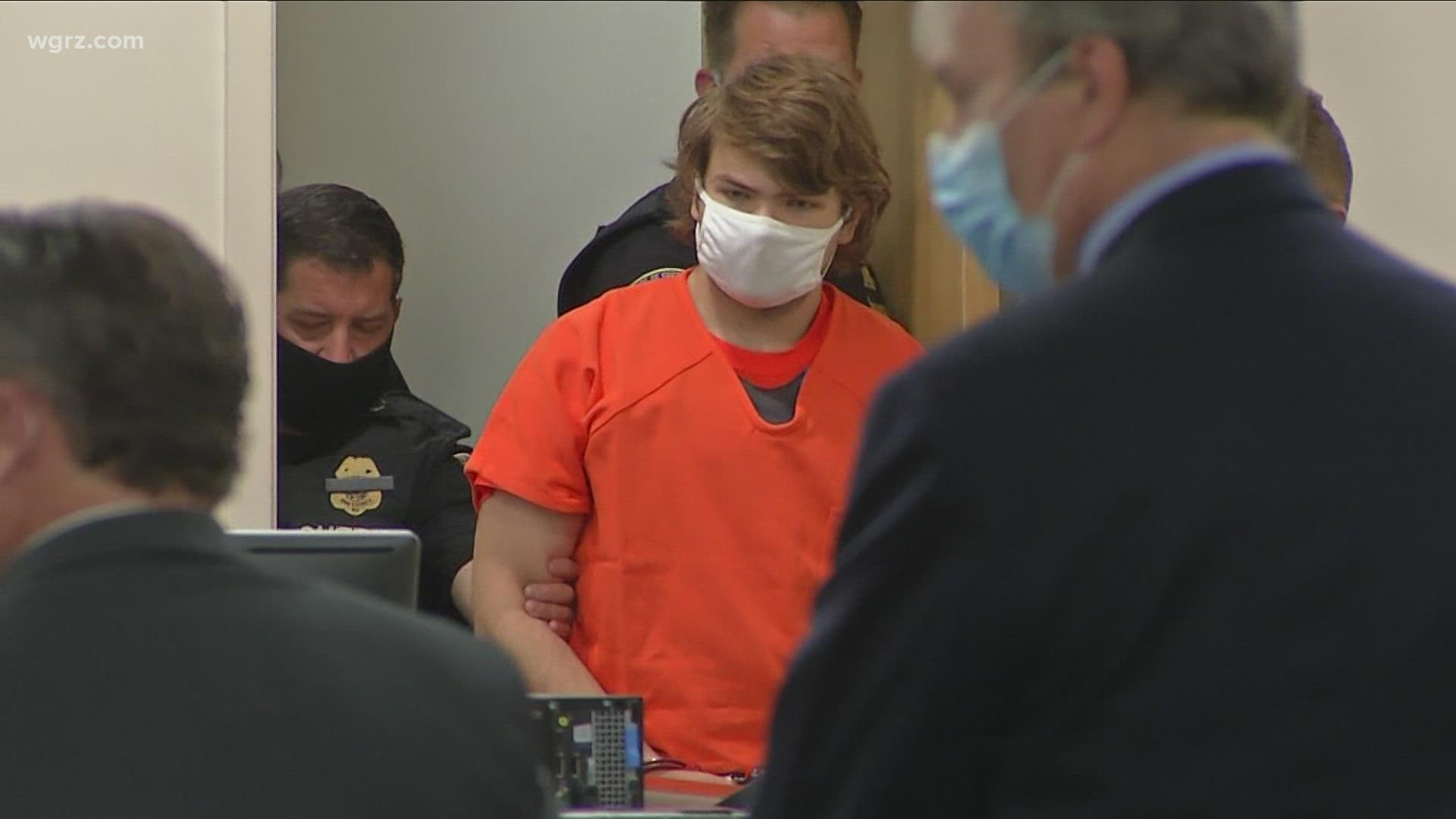BUFFALO, N.Y. — The country's top federal prosecutor reiterated Friday that the U.S. Justice Department will be investigating the mass shooter case in Buffalo as a hate crime.
And the big question that comes along with the potential federal case is whether the death penalty could be a part of it.
With the suspect back in court Thursday, 2 On Your Side learned a grand jury already voted for an as yet still sealed indictment against him. That is even as he is being held without bail on a single state count of first degree murder. A conviction would carry a life in prison without parole sentence.
But there might be more coming from federal prosecutors according to former U.S. Attorney Terrance Flynn.
Flynn, who is now in private practice with the Harris Beach Law Firm, says, "Investigators from both of their offices will be talking and getting an idea what the District Attorney is doing currently. And then at the same time, the U.S. Attorney's office with the Department of Justice is looking at those facts and whether there are other charges that would be appropriate."
The U.S. Justice Department did announce the night of the shooting that they were conducting a hate crime investigation with racially motivated violent extremism and the involvement by the FBI and ATF.
Current U.S. Attorney Trini Ross added earlier this week: "The U.S. Attorney's Office is actively engaged in this investigation. We will continue to be, and we'll continue to work with our law enforcement partners."
While the State of New York abolished the death penalty in 2004, capital punishment is still a federal court option, depending on potential charges.
"They'll look at the statute and see if it's possibly a statute that is a death penalty eligible statute," Flynn said.
While there is a moratorium on federal executions in the Biden Administration, could President Biden's visit signal any consideration? There are mixed views on that.
Defense attorney Barry Covert of the Lipsitz, Green, Scime, Cambria Law Firm has handled death penalty cases at both levels.
"There will certainly be a lot of pressure on the Biden Administration to seek the death penalty certification, to allow the jury to decide whether he should face the death penalty for these heinous crimes," Covert said.
However, Flynn says: "The time when I had it, you knew there were people in the community who had opinions, and no surprise, some politicians did. But it stayed at that point. They know better than to interfere, and the Department of Justice wouldn't allow it, wouldn't allow somebody to interfere in such a serious process."
The Biden Administration issued a moratorium on executions last year, and The Washington Post reports public opinion surveys very much against it. But over 40 people still sit on federal death row right now.
For example they include Dylann Roof, an identified white supremacist, who shot and killed nine Black people during a Bible church service in Charleston, South Carolina in 2015.
Covert says "this is very similar in charges to Dylann Roof."
Covert points out Roof's case took years to actually decide as most such cases do. That's in large part due to the life and death circumstances with certain factors much like the Buffalo shooter.
"I would expect that it will get into the mental health issues," Covert said. "They would submit issues relating to his age, that he's 18, and he's too young to be put to death for a crime of an 18-year-old."
You may recall that Pendleton native Timothy McVeigh was executed in 2001 for the 1995 Oklahoma city bombing. That is no surprise, for some legal experts, for how long it can take for an actual, execution.
Of course, that also is the situation for death penalty charge to be considered in the first place. Flynn says Washington DC officials would get involved.
"There is a whole review process that you must undergo before a decision is made to ensure if a death penalty is warranted to be pursued," Flynn said. "But again, that depends upon the statute, and then it depends upon the administrative review that is done by the Department of Justice."
And there are technicalities at times in that meticulous process. Flynn recalls the 2006 shooting death of New York State Trooper Andrew Sperr and the public calls for his killer who had robbed a bank to be executed.
"What we learned in that case, the underlying federal crime that would have been the basis for charges against the individual required a prior federal crime."
Flynn says the bank robbery was actually committed with a pellet gun instead of an actual firearm which would be a a federal count so that was enough to rule it out. We will see what happens in this case involving the mass shooting in Buffalo.

